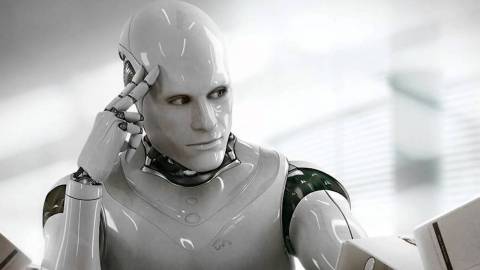How Artificial Intelligence will Revolutionize Healthcare

In 2013 Jeopardy! fans were blown away as IBM’s supercomputer WATSON wiped the floor with longtime champion Ken Jennings. Now WATSON HEALTH AI is being used in 16 cancer institutes across the country, helping to diagnose and treat patients. Meanwhile Google, not to be outdone, has launched DeepMind, which recently earned the title world champion of the complex game of Go. Now, DeepMind Health will create innovative new apps for healthcare professionals alerting them to patient emergencies, and the risk of complications when considering possible treatment options. Progenitors say that someday, it should even be able to predict a patient’s needs down the pike.

Other tech companies such as Dell, Hewlett-Packard, Apple, and Hitachi are also putting together AI programs for the healthcare field. Within the next five years, AI’s use in medicine is expected to increase tenfold. There are several areas where it is predicted to revolutionize healthcare, and places where it is already in use. In some cases, these advanced algorithms—all that AI is, has been proven to diagnose disease faster than humans.
Picture it, a patient comes in with terrible symptoms. The physician, a well-seasoned professional, has never seen anything like it before. In years gone by, in-depth research would take time, perhaps time the patient didn’t have. Today, a physician can log into Modernizing Medicine, find what rare condition it is, scroll through the treatment options available, and write a prescription in mere seconds. AI can help diagnose illness, offer novel treatment options, eliminate human error, and take care of all the repetitive tasks that clog up the system. These time saving measures mean more efficiency and reduced costs.
The healthcare-related information we possess today is astronomical. AI can help us sort through it. Modernizing Medicine collates data from 3,700 providers and over 14 million patient visits. Though impressive, future capabilities will dwarf this feat. IBM recently purchased Merge Healthcare Inc., a company with a repository of 30 billion medical images of every sort, which will be used to train WATSON to diagnose disease.

AI can also prevent recidivism, by helping follow cases and make further recommendations as time rolls on. At Vanderbilt University Medical Center and St. Jude’s Medical Center, both in Tennessee, electronic medical records are imbued with AI. A physician using them will occasionally get a pop-up explaining how certain genetic traits might affect their patient’s illness or how a new drug could improve their condition. Just by clicking the pop-up, a doctor can learn more, even prescribe a different medication. These e-medical records aren’t just saving time and space, they are actively helping to make patients better and doctors aware of the options and nuances before them. Some see applications in biomedicine too, personalizing treatment. Theoretically, AI can take a person’s genome and recommend treatment options that will serve them best, while limiting or even eliminating side effects.
In research, AI can streamline the selection process of drug development to be sure investigators are studying those which show the most promise, and help identify previously undiscovered pathways that could lead to new treatments and therapies. Treatment is one thing, compliance another. That’s why AICure contacts patients to ensure they are taking their medicine and doing so properly, helping patients manage their own treatment and care.
AI is expected to be a helpful tool. Rather than replace doctors, it should advance their capabilities and cover blind spots. That is, if we get the I, Robot future rather than the Terminator hellscape—as Stephen Hawking and others have warned. Chances are, it will be a mix of both, and far less dramatic. Though these technologies promise much, dovetailing them into our current healthcare system and training doctors and other medical professionals to use them remains a challenge. Also, as AI advances, we are bound to have a few hiccups along the way.
To learn more about WATSON click here:





